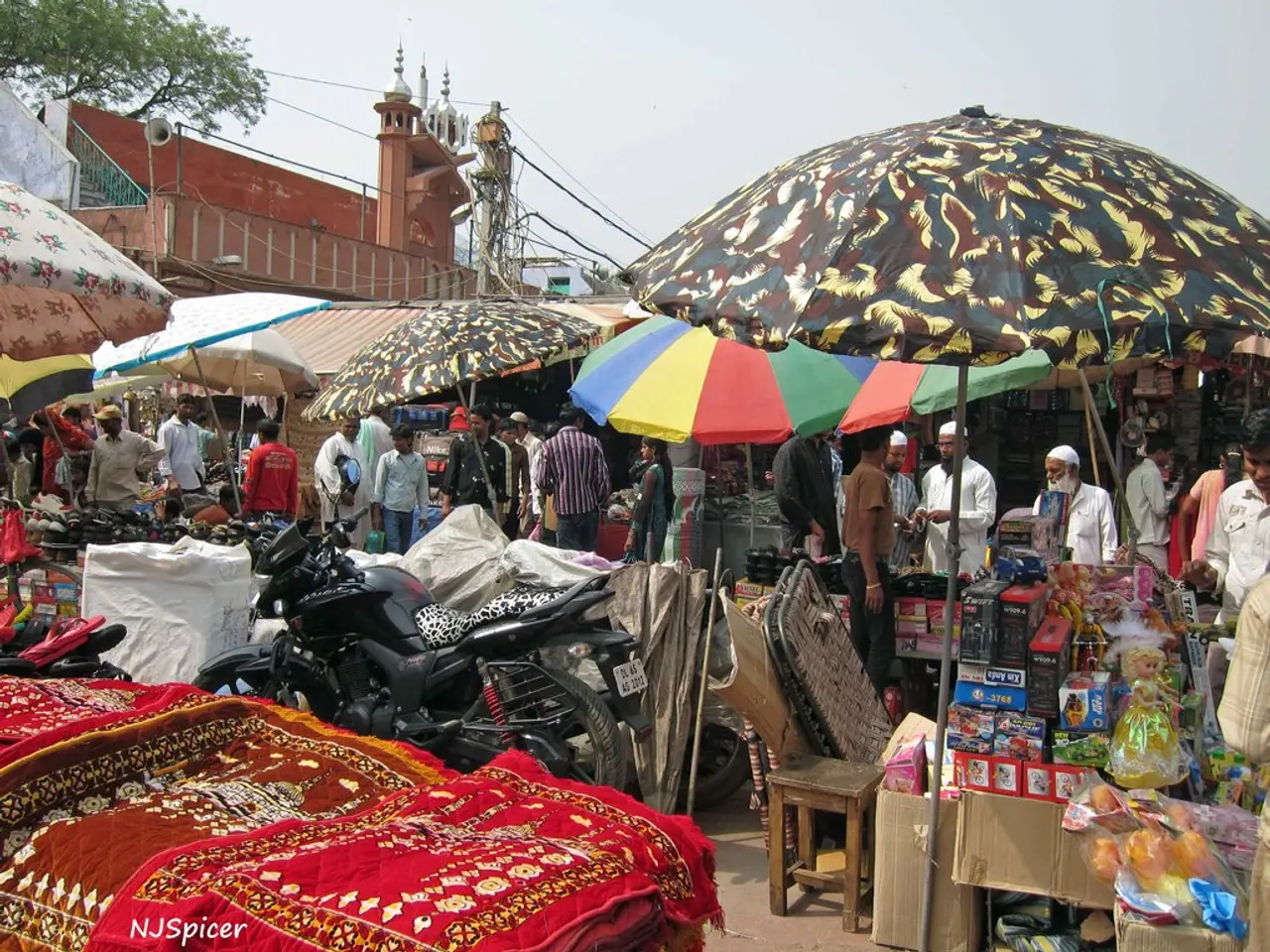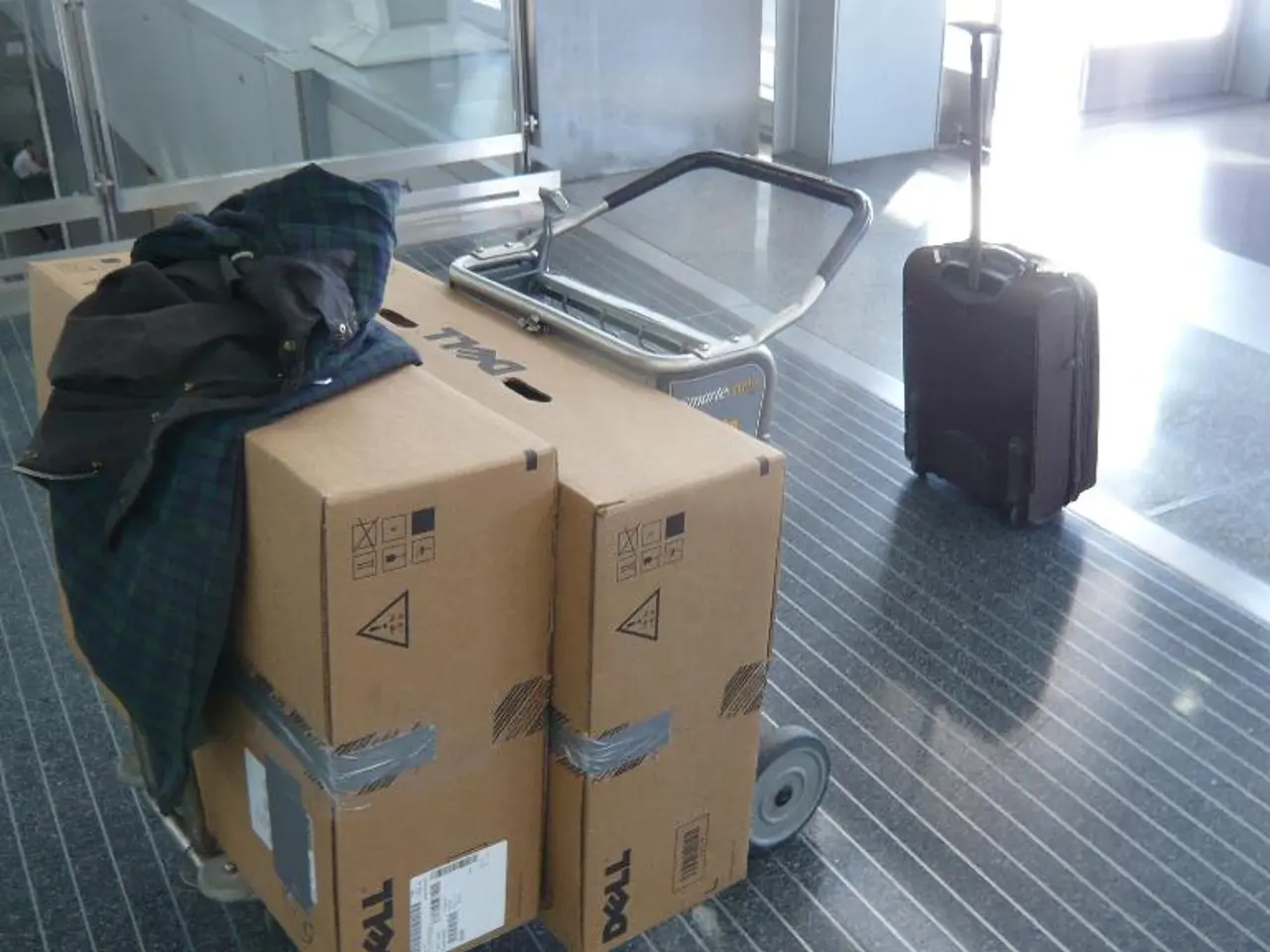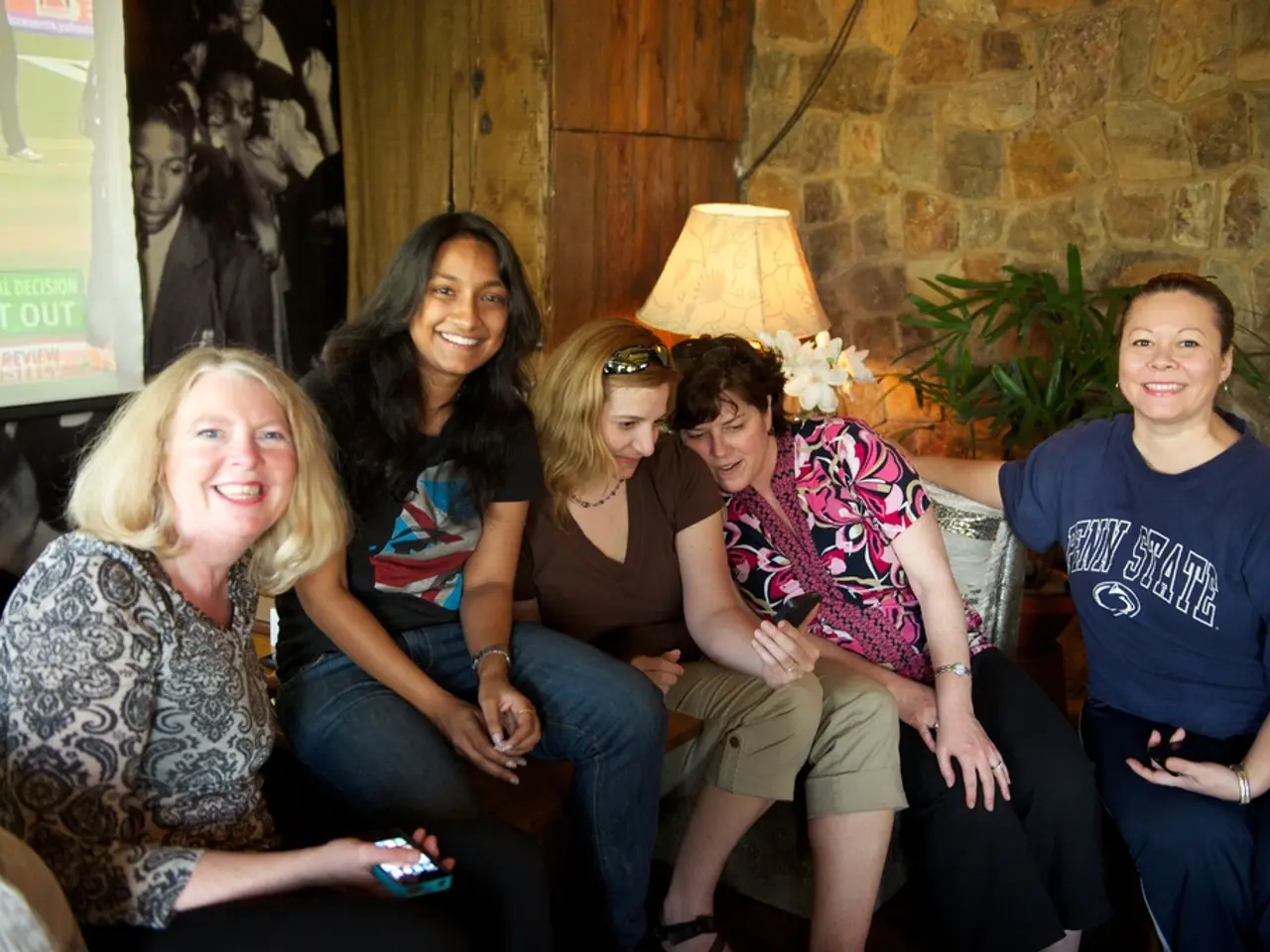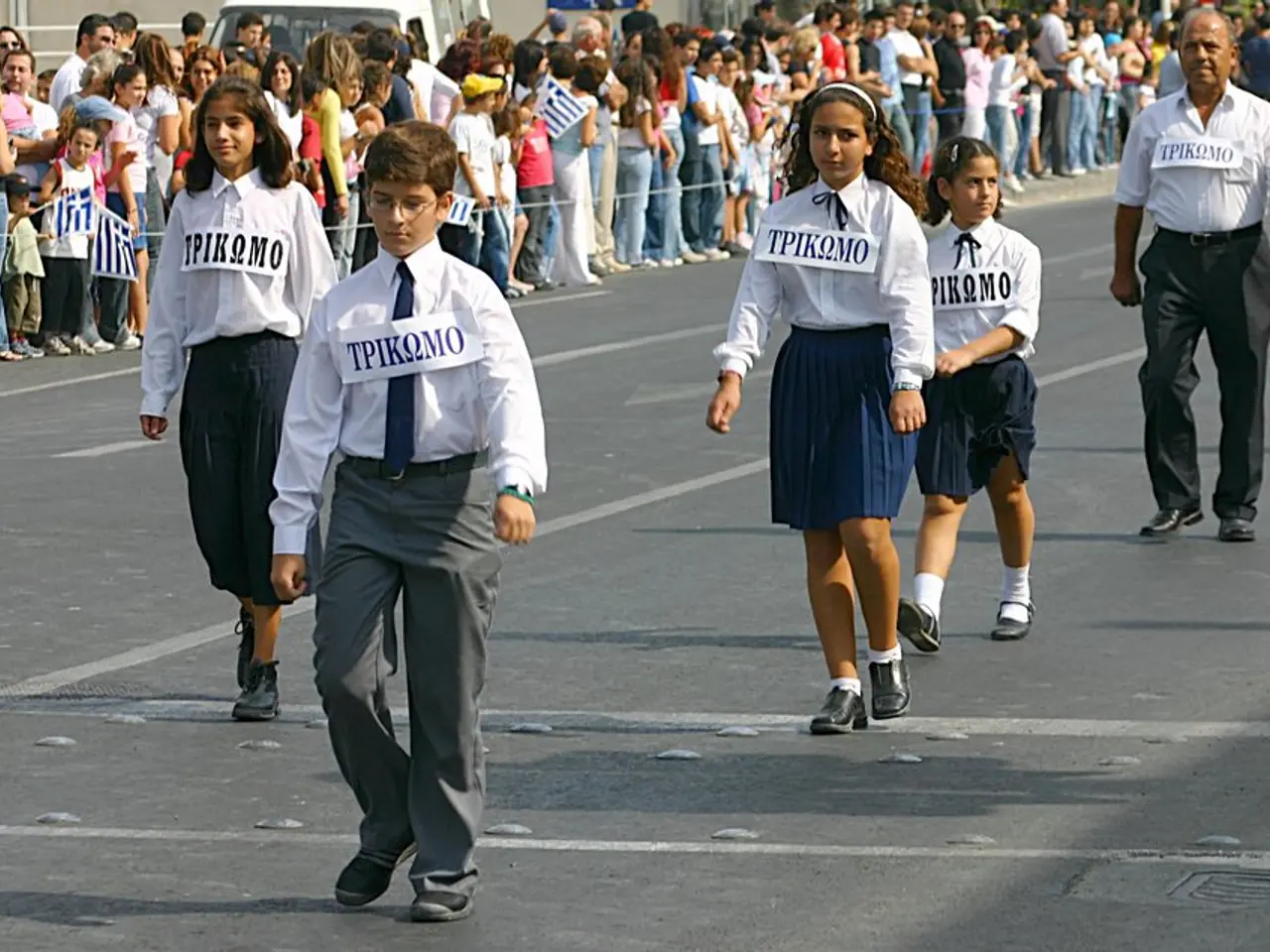Foreign linguists in the United Arab Emirates advocate for the prohibition of local dialect usage among non-Emiratis, aiming to foster correct language usage among children.
In a significant move to safeguard its linguistic and cultural heritage, the United Arab Emirates (UAE) government has recently implemented a new media policy. This policy aims to restrict the use of the Emirati dialect on media platforms and the wearing of national dress in advertisements to Emirati citizens only.
The policy, designed to maintain the distinctiveness of the Emirati dialect and traditional attire in the public sphere, is a bold step towards cultural preservation. Under the new regulations, only Emirati citizens are allowed to speak in the Emirati dialect on media channels, while the wearing of national dress in advertisements is limited to Emirati citizens as well.
The rationale behind this policy is to protect the Emirati cultural heritage amidst a diverse expatriate population and increasing globalization. By restricting the use of the dialect and traditional dress in media to citizens, the UAE aims to preserve its linguistic uniqueness and reinforce Emirati identity.
This policy fits within a context where the UAE government exercises control over cultural expression and media content to maintain social and cultural norms. By formalizing who can publicly use the Emirati dialect and traditional dress, the government seeks to reinforce Emirati identity in an influential domain such as media, which shapes public perception and cultural continuity.
The increase in educational initiatives and digital content may help broaden the understanding and usage of the Emirati dialect. Already, institutions like the Al-Ramsa Institute, the first centre in the region dedicated to teaching the Emirati dialect, play a crucial role in this regard. Entrepreneur Hanan Al Fardan, founder of the Al-Ramsa Institute, believes the media policy will educate future generations in the Emirati dialect.
Experts such as Alia, a researcher who stated that 80% of the Emirati dialect stems directly from Arabic, have long stressed the need to safeguard the Emirati dialect against misrepresentation and misuse, particularly in media and advertising. Sheikha Mohammed Al Hai, a writer and heritage researcher, shares the same view regarding the media policy. Lamia Rashid Al Shamsi, a Sharjah-based heritage enthusiast, has been documenting Emirati vocabulary since 2014.
The cultural preservation effort through the media policy might have a ripple effect, influencing other regions in the Arab world. Some predict that the policy may inspire similar measures across the Arab world for cultural preservation.
In summary, the UAE's new media policy is a significant step towards preserving its linguistic and cultural identity. By limiting the use of the Emirati dialect on media solely to Emirati citizens and restricting the wearing of national dress in advertisements to Emiratis only, the UAE aims to protect its unique heritage amidst a multicultural society. This policy underlines the UAE's prioritization of cultural preservation within its rapidly modernizing and internationally diverse environment.
- The UAE's new media policy, a part of the broader policy-and-legislation sphere, aims to protect and preserve the Emirati linguistic and cultural heritage against misrepresentation and misuse, particularly in the realm of media and advertising.
- As the UAE government maintains a strong hold over cultural expression and media content to enforce societal norms, this policy serves to reinforce Emirati identity in the influential domain of media, thereby shaping public perception and cultural continuity.
- The new media policy, when viewed in light of the increasing globalization and diverse expatriate population, is a bold step towards not only the cultural preservation but also the general-news discourse of the nation, paving the way for a clearer understanding and promotion of the Emirati dialect in education and research circles.







